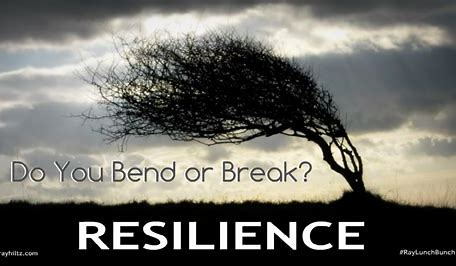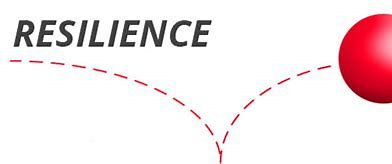Do you know someone who seems to be able to cope with life’s
ups and downs and ‘bounce back’ after a setback? Their resilience is a skill we
can all learn.

It could be an unrealistic workload, on-going stress related
to the coronavirus pandemic, or job insecurity. Whatever the cause,
work-related stress is common and according to Safe Work Australia, accounts
for long periods of sick leave.
To cope with the stresses of life, it’s important to stay as
mentally well as possible. Building resilience is one way we can contribute to
a more mentally healthy workplace, says Dr Sam Harvey, a psychiatrist with the
Black Dog Institute and head of the Workplace Mental Health Research Group.
“We know that resilient people bounce back and don’t get ill
where others would in the face of psychological stressors,” says Dr Harvey.

Resilience is more than coping with life’s sudden problems.
People who are resilient are also flexible, can adapt to new situations, learn
from experience, tend to be optimists, and are able to ask for help when they
need it.
Building your resilience
For a long time, resilience was thought to be inherited or
acquired early in life, or perhaps something that was internal, part of your
personality. We now know that it’s possible to develop resilience.
We have this mistaken image of resilient people as
bulletproof, as people who somehow don’t feel pain, or can cope without asking
for help, or can cope without asking for help, says Dr David Westley, head of the
psychology department at Middlesex University, UK. In fact, the opposite is
true, he says. It’s the people who can ask for help, who can express their
worries, fears and sadness, that cope with trauma, loss and stress much better,
he told the BBC.
Techniques for building resilience include:
- Staying connected. Whether this is in-person or
remotely, aim to maintain good friendships and family relationships, as social
interaction and support is vital to good mental health. Being able to ask for
help from your family and friends when you need it is also key to managing
stressful situations.
- Taking time to recharge. Make sure you take
regular breaks, finish work on time, and plan to take leave when you are able.
Even if you physically can’t go away anywhere, it’s always good to take a break
from what you’re doing.
- Practising stress-reducing techniques. This is
very personal – mindfulness and mediation may work for you, but they don’t for
everyone. You may find exercising, reading a book or listening to music is a
better tool for reducing your stress.